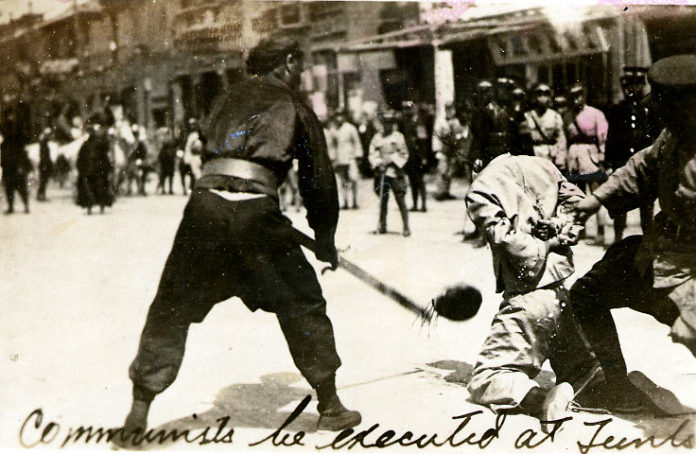
Socialistisk Biblioteks Tidslinje med links til begivenheder og personer i 1927.
Se også Index over personer, organisationer/partier og værker (som bøger, malerier, mm.), steder, begivenheder, mv., der er omtalt på hele Tidslinjen, titler og indhold på emnelisterne osv.
Bladliste
Nye blade 1927:
- Alarmklokken. Udgivet af Sporvejsfunktionærernes klub under DKP.
- Klassekamp. Udg. af Danmarks kommunistiske Parti, Aalborg Afdeling.
- Kritisk Revy
“i tidsskriftet .. fandt mange af dem [de venstreintellektuelle] et åndehul..
Citat: Tage Kaarsted, i Gyldendal og Politikens Danmarkshistorie, bd. 13, side 69
Se:
Arbejderhistorisk bladliste, under året 1927. (scroll ned)
19. februar 1927
Georg Brandes dør i København (født 4. februar 1842, se denne)
6. marts 1927
Den colombianske forfatter Gabriel José Garcia Márquez fødes i Aracataca, Colombia. Dør 17. april 2014 i Mexico City, Mexico. Nobelprisen i litteratur 1982.
Se på Socialistisk Bibliotek:
Linkboxen: Gabriel Garcia Márquez (1927-2014)
12. april 1927
Efter 2 års eksplosiv opsving i arbejderklassens kamp og fagforeningers og kommunistpartiets (KKP) vækst, får den af Kommunistisk Internationale påtvungne “arbejder-bonde-alliance” med det borgerlige – og sovjetisk støttede og bevæbnede – Goumindang en afslutning, da dette i et blodbad i Kinas største industriby Shanghai udsletter strejkebevægelsen og arbejdernes organisationer. Ledelsen af det slagne og decimerede KKP overgår til Mao Zedong og partiets politik begrænses til bondeguerilla og organisering uden for byerne. Goumindang skulle “presses som en citron og kastes bort” (Stalin). Det værste negative eksempel på at den permanente revolutions teori blev erstattet af Stalins teori om “socialisme i et land”.
Se:
Den kinesiske revolutions nederlag 1925-27: en unødvendig tragedie. Af Hans Jørgen Vad (Aktivt Socialistisk Forum, 1991, 23 sider; online på Internet Archive). Historieopgave ved Århus Universitet.
The First Chinese Revolution. Chapter 78 in Neil Faulkner: A Marxist History of the World (Counterfire, 4 June 2012).
The Workers’ Revolution. Chapter 1 in Nigel Harris: The Mandate of Heaven (London, 1978, s.3-15; online at Marxists Internet Archive).
The coup of April 12, 1927. Chapter 10 in Harold R. Isaacs: The Tragedy of the Chinese Revolution (London, 1938).
Den første kinesiske revolution 1925-27. Af Charlie Lywood (Socialistisk Arbejderavis, nr. 401, 10. august 2023) (Almindelige menneskers historie, del 30). “Man kan ikke forstå den kinesiske revolution i 1949 uden dennes baggrund i den første kinesiske revolution i 1925-27. Det er i dennes nederlag, at kimen til Maos nationalistiske og ikke-socialistiske revolution dannes. Det er her han lærte at arbejder- og bondeoprøret var ikke vejen frem, men at det var militærmagten som var det væsentligste.”
The Chinese revolution of 1925–27. By Dennis Kosuth (International Socialist Review, Issue 74, November–December 2010). Review of Harold Isaacs, The Tragedy of the Chinese Revolution (Haymarket Books, 2010, 384 p.). “Isaacs’s book is not just a damning account of the first great crime of Stalinism outside the Soviet Union; it is also a testament to the fighting spirit of the Chinese peasants and workers.”
See also:
1927: When China’s workers challenged for power (Solidarity.net.au, Issue 49, 5 September 2012). “Harold Isaacs’ magnificent account … written in 1938, uncovers this hidden history”.
The tragedy of the 1925-1927 Chinese Revolution. By John Chan (World Socialist Web Site, 5 January 2009). “The rise and fall of the Second Chinese Revolution of 1925-1927 was one of the most significant political events in the history of the twentieth century. This failed revolution ended with the deaths of tens of thousands of communist workers and the total destruction of the Chinese Communist Party (CCP) as an organised mass movement of the working class.”
Chinese Communist Revolution, 1925–1949. By Pierre Rousset (The International Encyclopedia of Revolution and Protest. Vol 2. Blackwell Publishing, 2009, p.721-732; online at Europe Solidaire Sans Frontiéres)
The Chinese revolution of 1925 to 1927 – an unnecessary tragedy. By Charlie Hore (Socialist Worker, Issue 2053, 29 May 2007). “Eighty years ago China saw the possibility for change in its revolution of 1925-7, but faith in nationalist ‘allies’ led to its defeat.”
Workers in the Chinese revolution of 1926-27. By Liz Millward (Workers’ Liberty, 31 October 2007/1989). “The story of the Chinese revolution of 1927, is a story of how a working class developed in China, how its struggles interlaced with those of the nationalist bourgeoisie, how the young Chinese Communist Party misled those struggles and why, ultimately, they were defeated.”
Den kinesiska revolutionen 1925-27. I Kenth-Åke Andersson: Lögnens Renässans (Temanummer af Fjärde Internationalen, 7-8/72, p.42-64). Som pdf-fil (Marxistarkiv.se). “Vi skall först redogöra för Kominterns analys av den koloniala revolutionen, därefter undersöka den kinesiska revolutionens förutsättningar och dess olika klasskrafter. Därefter ger vi en fyllig redogörelse för de olika faserna i denna revolution under åren 1925-27.”
Se også:
Leon Trotsky’s collected writings on China (Marxists Internet Archive)
China and Trotskyism: Marxist discussion on China, 1929-2017. Edited by Paul Hampton (Workers Liberty, 2023, 48 p.). “These articles from the Trotskyist tradition about Maoist China provides a unique perspective that has long been buried. The Chinese Communist Party was an authentic workers’ party in the 1920s, until misguided by Stalinism and exterminated by the Guomindang. These leading communists became Trotskyists after the failed 1925-27 revolution.”
What was Chinese Trotskyism?: Reflections on Wang Fanxi’s Mao Zedong Thought. By Promise Li (Spectre, October 28, 2021). “Here I offer a few little-known vignettes to paint a picture of what this marginal Marxist movement entailed and through which alternative futures were being imagined on the ground.”
Karl Radek on China: Documents from the Former Secret Soviet Archives. Edited by Alexander Pantsov (Brill, 2020, 510 p.). Review by Fabian Van Onzen (Marx & Philosophy Review of Books, 26 November 2021). “Stenographic copies of Radek’s lectures given at the Communist University of the Toilers were … had been kept secret for over ninety years because of Radek’s involvement with the left-opposition.”
See also review by Paul Hampton (Solidarity & Workers’ Liberty, Issue 633, 4 May 2022). “Pantsov’s book is a welcome contribution to the real history of the Chinese revolution.”
The Chinese Communist Party 1927-37: The development of Maoism. By Daniel Morley (In Defence of Marxism, 9 November 2012 – 20 December 2013). “As the Chinese Communist Party gathers for its 18th Congress, we look back at the 1925-27 revolution, which was a heroic attempt of the Chinese workers to follow in the footsteps of the October 1917 Russian Revolution. However, due to its unprepared and irresolute leadership, it went down to a tragic defeat.”
Trotskyism in China. Chapter in Robert J. Alexander’s International Trotskyism, 1929-1985, a documented analysis of the movement (Duke University Press, 1991). “Differences over the Communist International’s policies during “the second Chinese Revolution” (1925-1927) were one of the first major issues which differentiated International Trotskyism from Stalin’s followers in the Comintern.”
Revolutionärerna i Kinas städer (pdf). Av Gregor Benton (Marxistarkiv.se). Uddrag af (s.1-123): China’s Urban Revolutionaries: Explorations in the History of Chinese Trotskyism, 1921-1952 (Humanities Press, 1996, p.1-123).
Se også Gregor Benton: Explorations in the history of Chinese Trotskyism (pdf) (IIRE Working Papers, Issue 26, 1992, 50 p.) + Gregor Benton (ed.): Prophets Unarmed: Chinese Trotskyists in Revolution, War, Jail, and the Return from Limbo (Brill, 2015/Haymarket Books, 2017, 1269 p.); and review by Charlie Hore: Trotskyism in China (International Socialist Review, Issue 111, Winter 2018-19): “This magisterial work, building on materials both previously translated and written by the editor, should do much to reverse that lack of knowledge. It is an inspiring story of perseverance against unimaginable odds to keep alive a revolutionary tradition.”
Temanummer: The Tragedy of the Chinese Revolution (Revolutionary History, Vol.2, No.4, Spring 1990, p.1-42; online at Marxists Internet Archive). With articles by Pierre Broue, Zheng Chaolin, Peng Shuzi and Wang Fanxi.
Se også:
China / Chinese Trotskyism (Marxists Internet Archive)
Se også på Socialistisk Bibliotek:
Tidslinjen 30. december 2002 om Wang Fanxi.
Linkboxen Folkerepublikken Kina, 1949-
19. juli 1927
Den svenske forfatter og politiske aktivist og debatør Jan Myrdal fødes i Stockholm sm søn af de soc.dem. politikere Alva og Gunnar Myrdal. (dør 30. oktober 2020, for links, se denne dato).
19. august 1927
Socialistisk Folkepartis 3. formand (1974-1991) fødes i Nykøbing Falster (dør 1. januar 2009).
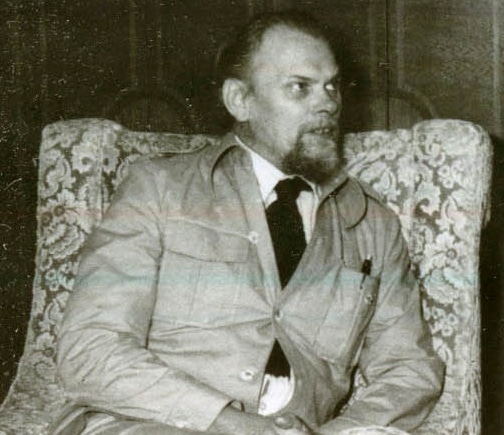
Se på Socialistisk Bibliotek:
Linkboxen: Gert Petersen (1927-2009)
23. august 1927
Anarkisterne Sacco og Vanzetti henrettes i den elektriske stol i staten Massachuset trods omfattende international solidaritetskampagne.
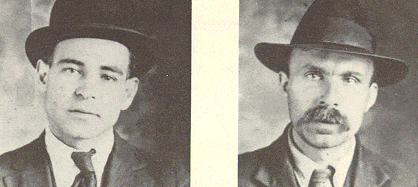
Se på Socialistisk Bibliotek:
Linkboxen: Sacco & Vanzetti-sagen
16. oktober 1927
Den tyske forfatte Günter Grass fødes i Gdansk (dengang tysk: Danzig). Dør 13. april 2015.
Nobelpris i litteratur 1999.
I 2012 fik han i foråret forbud med indrejse i Israel, og hyldede i efteråret den livstidsdømte israelske whistleblower Mordechai Vanunu.
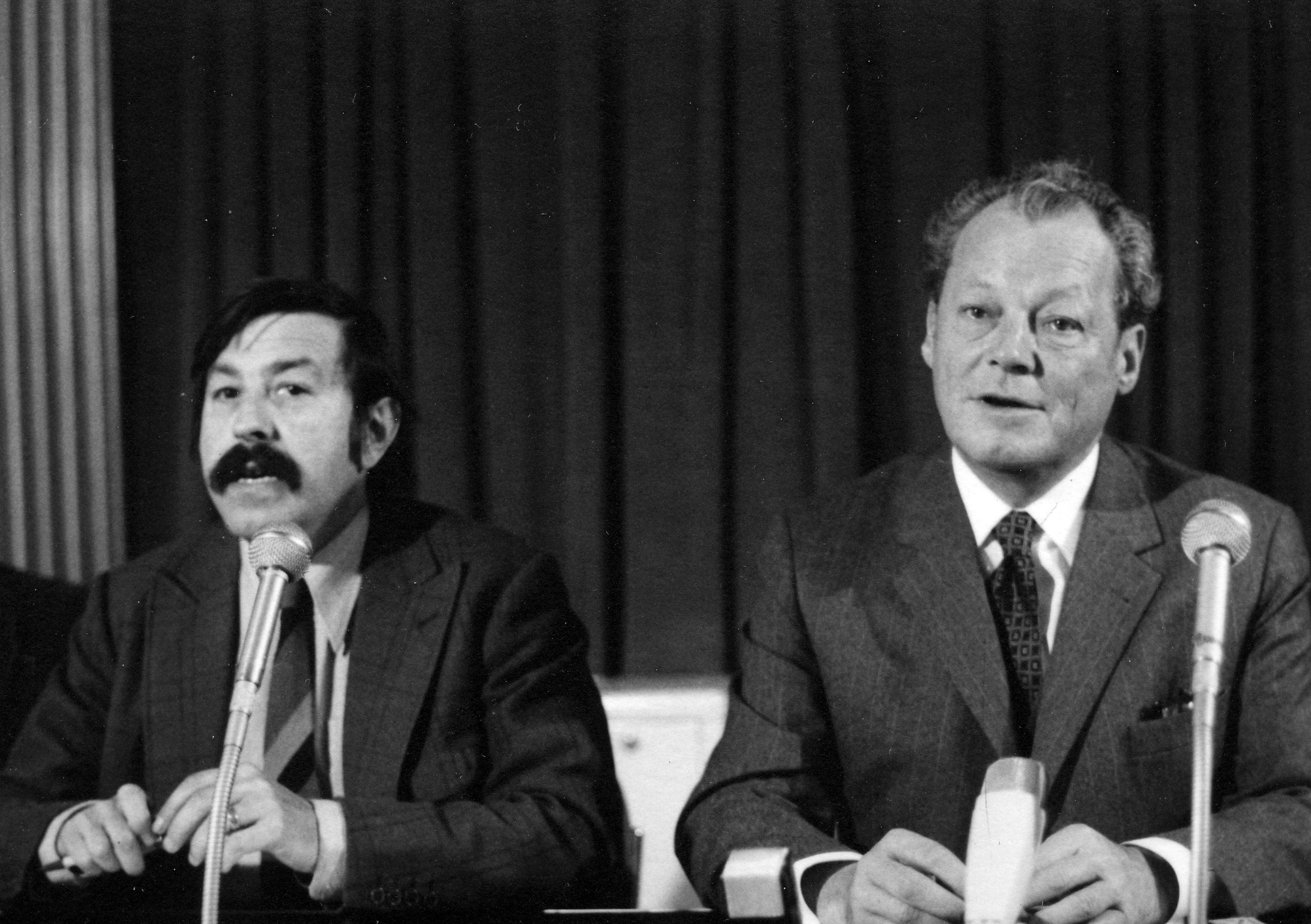
Se:
Günter Grass (Denstoredanske.dk)
Günter Grass (Wikipedia.dk). Dansk artikel med bibliografi og med link til store tyske, engelske og andre artikler.
Günther Grass (Bibliografi.dk: international forfatterbibliografi). Günther Grass på dansk.
Den stridbare trommeslager. Af Lasse Soll Sunde (Information.dk, 18. april 2015). Se også læserbrev af Joachim Lund: Myten om Günther Grass (Information.dk, 21. april 2015). Scroll ned.
Nationens alternative historiefortæller. Af Peter Nielsen (Information.dk, 14. april 2015)
Nekrolog: Storm og stille. Af Per Øhrgaard (Politiken.dk, 13. april 2015)
Tysklands litterære provokatør nummer et fylder 85. Af Peter Wivel (Politiken.dk, 16. oktober 2012)
’Ligegyldighed er katastrofal’. Af Anton Geist (Information.dk, 27. august 2010). Interview med Günter Grass.
An appraisal of German writer Günter Grass: 1927-2015. By Sybille Fuchs and Wolfgang Weber and Peter Schwarz (World Socialist Web Site, 25 April 2015)
World famous German author Günter Grass dies at age 87. By Peter Schwarz (World Socialist Web Site, 14 April 2015)
Günter Grass and the Waffen SS. By Peter Schwarz (World Socialist Web Site, 4 May 2012)
Se også:
Gunter Grass and Vanunu (Red Rag Weekly Column). By Gideon Spiro (Occupation Magazine, 3 October 2012)
Günter Grass poem praises nuclear whistleblower Mordechai Vanunu. By Alison Flood (The Guardian, 1 October 2012)
Grass kalder Israel en trussel mod verdensfreden. Af Henriette Harris (Information.dk, 6. april 2012). Se et uddrag af Günter Grass’ digt ’Hvad der må siges’ – scroll ned.
Dokumentation: Læs Günter Grass’ digt (Politiken.dk, 7. april 2012)
Pinligt angreb på Günther Grass. Af Ulla Jessing (Modkraft.dk/Blog, 5. april 2012). Blogindlæg med debat.
What Must Be Said (Wikipedia.org)
The attacks on Günter Grass – a balance sheet. By Peter Schwarz (World Socialist Web Site, 5 May 2012)
Günter Grass and the German neurosis. By Maciej Zurowski (Weekly Worker, Issue 910, April 19, 2012)
German Left Party slanders Günter Grass. By Stefan Steinberg (World Socialist Web Site, 14 April 2012)
Stop the war mongers! Defend Günter Grass! By Wolfgang Weber (World Socialist Web Site, 11 April 2012)
The disgusting attacks on Gunter Grass: why no sympathy for the Palestinians? By Tariq Ali (CounterPunch, April 10, 2012)
Poem sparks debate about whether Germany should absolve Israel’s crimes. By Raymond Deane (The Electronic Intifada, 9 April 2012)
Israel has reacted with hysteria over Gunter Grass (Haaretz Editorial, 09.04.12)
Se på Socialistisk Bibliotek:
Tidslinjen: 7. december 1987, om Mordechai Vanunu
12. november 1927
Trotskij ekskluderes af Sovjetunionens Kommunistiske Parti efter Venstreoppostionens sidste offentlige manifestation i Rusland på revolutionsdagen. Trotskij deporteres fra Moskva (17. januar 1928) til Alma Ata i Sibirien.
Se :
1927: The expulsion of Leon Trotsky. By Phil Mitchinson (In Defence of Marxism, January 2002).
Se også på Socialistisk Bibliotek:
Tidslinjen: 7. november 1879, om Trotskij liv, værk og biografier.
17. december 1927
Hubert Harrison dør i New York. Den radikale sorte vestindisk-amerikanske politiske aktivist, redaktør m.m. fødtes i Dansk Vestindien, på St. Croix, ( 27. april 1883, se denne)
















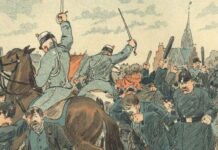
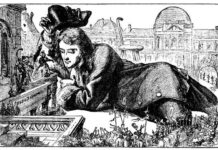
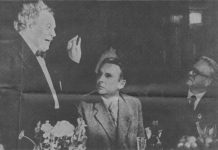
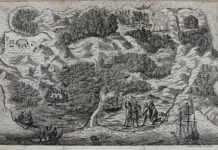
![A demonstration of workers from the Putilov plant in Petrograd (modern day St. Peterburg), Russia, during the February Revolution. The left banner reads (misspelt) "Feed [plural imperative] the children of the defenders of the motherland"; the right banner, "Increase payments to the soldiers' families - defenders of freedom and world peace". Both refer to the economic toll the First World War was having on civilian life, February 1917 (probably around March 7 [O.S. February 22]) Photo: Unknown. Public Domain.](https://socbib.dk/wp-content/uploads/2007/04/1917-februarrevolution2.1500x0-218x150.jpg)












